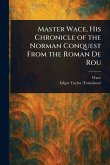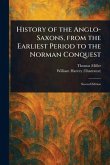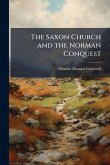Delve into the pivotal moment in English history with Edward Augustus Freeman's definitive work, "The History of the Norman Conquest of England." This meticulously researched account explores the causes, events, and far-reaching consequences of the Norman invasion of 1066, forever changing the political and cultural landscape of England. Freeman's detailed narrative brings to life the key figures, battles, and strategies that defined this era. From the Battle of Hastings to the establishment of Norman rule, this book offers a comprehensive understanding of the conquest's impact on English society, law, and language. Discover the legacy of William the Conqueror and his lasting influence on the British Isles in this enduring historical study. This work has been selected by scholars as being culturally important, and is part of the knowledge base of civilization as we know it. This work was reproduced from the original artifact, and remains as true to the original work as possible. Therefore, you will see the original copyright references, library stamps (as most of these works have been housed in our most important libraries around the world), and other notations in the work. This work is in the public domain in the United States of America, and possibly other nations. Within the United States, you may freely copy and distribute this work, as no entity (individual or corporate) has a copyright on the body of the work. As a reproduction of a historical artifact, this work may contain missing or blurred pages, poor pictures, errant marks, etc. Scholars believe, and we concur, that this work is important enough to be preserved, reproduced, and made generally available to the public. We appreciate your support of the preservation process, and thank you for being an important part of keeping this knowledge alive and relevant.
Bitte wählen Sie Ihr Anliegen aus.
Rechnungen
Retourenschein anfordern
Bestellstatus
Storno








